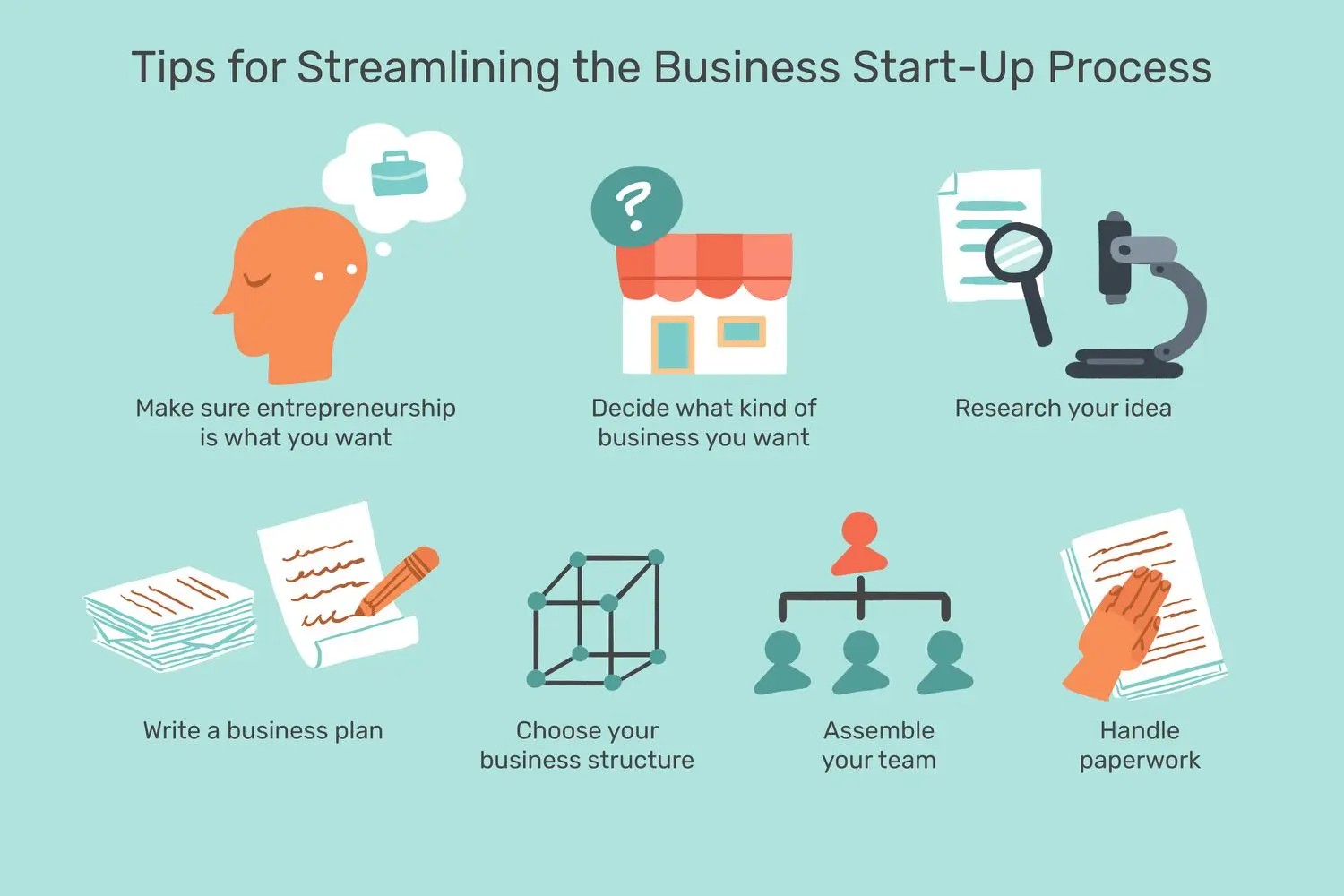
1. Develop Your Business Idea
The first step in starting any business is identifying your business idea. This could be something you're passionate about or a solution to a problem you've noticed in the market. Research your idea to ensure it has potential demand and to understand your competition. Remember, the best ideas often fill a gap or unmet need in the market.
2. Write a Business Plan
A well-thought-out business plan is essential for success. This document outlines your business goals, target market, competitive analysis, marketing strategy, and financial projections. Not only does this plan guide your business decisions, but it's also critical when securing funding from investors or loans from banks.
Key Elements of a Business Plan:
- Executive Summary
- Business Description
- Market Research
- Marketing & Sales Strategy
- Financial Projections
3. Choose Your Business Structure
Deciding on the right business structure is crucial for legal and tax purposes. Some common structures include:
- Sole Proprietorship
- Partnership
- Limited Liability Company (LLC)
- Corporation
Each structure has its own advantages and disadvantages. Consult with an attorney or accountant to choose the best structure for your business.
4. Register Your Business
Once you’ve chosen your structure, the next step is to register your business. This involves registering your business name with local and federal authorities. You might also need to apply for certain licenses and permits depending on your industry. Ensure you comply with all legal requirements.
5. Secure Financing
Every business needs funding to get off the ground. Explore different ways to secure financing such as:
- Personal savings
- Bank loans
- Venture capital
- Crowdfunding
Your business plan will come in handy when pitching to investors or applying for loans.
6. Build Your Brand
Your brand is the face of your business, encompassing everything from your logo and website to your social media presence. Craft a compelling brand identity that resonates with your target audience. This will help establish credibility and attract potential customers.
7. Set Up Your Business Operations
To operate efficiently, you’ll need to set up your business operations. This includes choosing a location, purchasing equipment, hiring staff, and setting up accounting systems. Also, consider tools and software that will streamline operations, such as workflow automation tools.
8. Launch Your Business
After completing all the preliminary steps, you’re ready to launch your business. Use marketing tactics like social media campaigns, email marketing, and promotions to create buzz and attract customers. Stay adaptable and responsive to early feedback to refine your operations.
Chart: Step-by-Step Business Startup Guide
| Step | Description |
|---|---|
| 1. Develop Business Idea | Identify a business idea with market potential. |
| 2. Write a Business Plan | Outline goals, market research, and financial strategy. |
| 3. Choose Business Structure | Select the best legal structure for your business. |
| 4. Register Your Business | Register your business name and obtain necessary permits. |
| 5. Secure Financing | Find funding options like loans, savings, or investors. |
| 6. Build Your Brand | Develop a brand identity, logo, and online presence. |
| 7. Set Up Operations | Set up your location, systems, and hire staff. |
| 8. Launch | Begin marketing and adjust based on early feedback. |
By following these steps, you’ll be well on your way to starting a successful business. Persistence and adaptability are key as you navigate challenges and opportunities in the business world.


